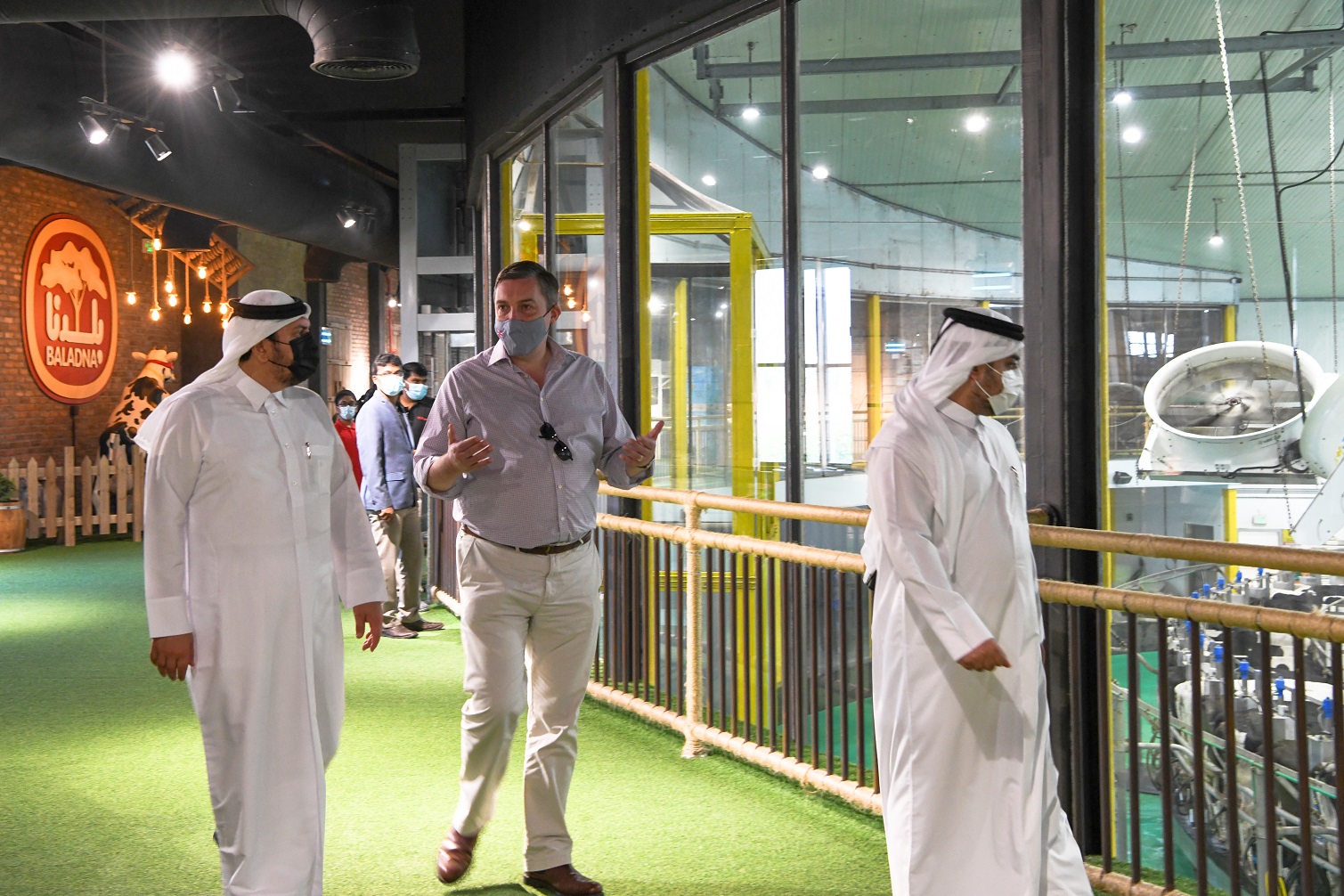How dairy farming and fresh milk could entrench British-Qatari trade relations
November 11, 2020There can be a sense of trepidation when a country’s trading relationships change overnight.
In 2017, Qatar had to accelerate plans to become a more diversified economy, because of the blockade that was part of the Middle East’s diplomatic crisis.
Food was a particular problem, with vital supply chains cut-off. Baladna, covering an area of 2.4 million square metres just north of Doha, was created with a mission to make Qatar self-sufficient in milk and dairy.
By importing 20,000 cows from Europe and the US a little over three years ago, we quickly grew the business so that we now supply eight out of 10 glasses of milk in Qatar.
Not bad for a hot, dry country that is ill suited to traditional agricultural practices. As managing director Ramez Al-Khayyat puts it: “Baladna has been a shining example of how companies can turn crises into opportunities.”
As a proud Scot running this business, it was a delight to be able to welcome the British ambassador to Qatar, John Wilks, to Baladna Farm last month.
During a comprehensive tour of our factory, milking parlour, and restaurant, we showed how that growth has continued even with the health & safety measures that are so vital during a pandemic.
Baladna has contributed to Qatar’s food security and safety through a diplomatic crisis and a blockade. We’re now looking to help other countries, such as Malaysia, repeat this model of self-sufficiency.
I might live around 3,500 miles from Scotland today, but I do appreciate there are concerns in the UK regarding international trading relationships from 31 December.
Whatever happens, we assured the ambassador that there are UK opportunities with Qatar in general and Baladna in particular.
Chairman Moutaz Al-Khayyat said at the meeting: “Baladna has a growing trade and international collaboration with different countries. We are looking to grow closer together, especially during these challenging times.”
The ambassador and our team discussed potential collaborations with UK dairy farms, particularly around herd technology. The cows themselves might not realise it, but Baladna’s cows are very efficient. They produce an average of 37 litres of milk per day against a typical 22 and 30 litres in the UK and US respectively.
Any discussions between Qatari and British dairy farms will help build on an already strong UK-Qatar relationship, which has been a feature of the World Cup-related infrastructure boom.
In a recent virtual forum, Mr Wilks said that the UK has been witnessing growth in its exports of goods and services to Qatar, even though trade between both countries was already $9bn (£6.9bn) in 2019. “We are buying more gas from Qatar, so in that direction that is of increasing importance,” he added.
Qatar is already the UK’s third biggest market in the region and Mr Wilks said ministers and officials in Doha and London want to grow trade and investment during the economic recovery from the pandemic. It is a relationship that is in “great shape” and bolstered by plenty of “high level political contact” in recent months.
With the UK poised to start a post-Brexit trade and investment review of Gulf markets, we can expect more of this positive talk.
Together, Qatar and the UK can help each other develop those international trading networks in the post-Covid, post-blockade, post-Brexit world. And, maybe one day soon, Brits might be able to enjoy a glass of Baladna’s 100% fresh milk as part of that closer relationship.
by Malcolm Jordan, Chief Executive, Baladna QPSC
This article was originally published in Politics Home.
Source: https://www.politicshome.com/members/article/how-dairy-farming-and-fresh-milk-could-entrench-britishqatari-trade-relations
